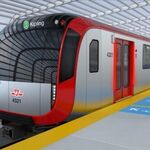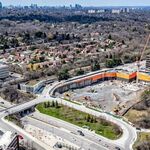nfitz
Superstar
This expansion of Terminal 1 has been planned for years. Presumably they've targeted when they want it to come on line, and then have worked backwards to how to build it the cheapest - which isn't necessarily the fastest. It's not like if it takes 2 years or 5 years to build, that it has much impact on the rest of the airport operations - unlike the new T1 construction.
For example, they may be avoiding winter construction, and may have less overlap of various types of construction as they did when they built the original terminal.
For example, they may be avoiding winter construction, and may have less overlap of various types of construction as they did when they built the original terminal.
Last edited:





